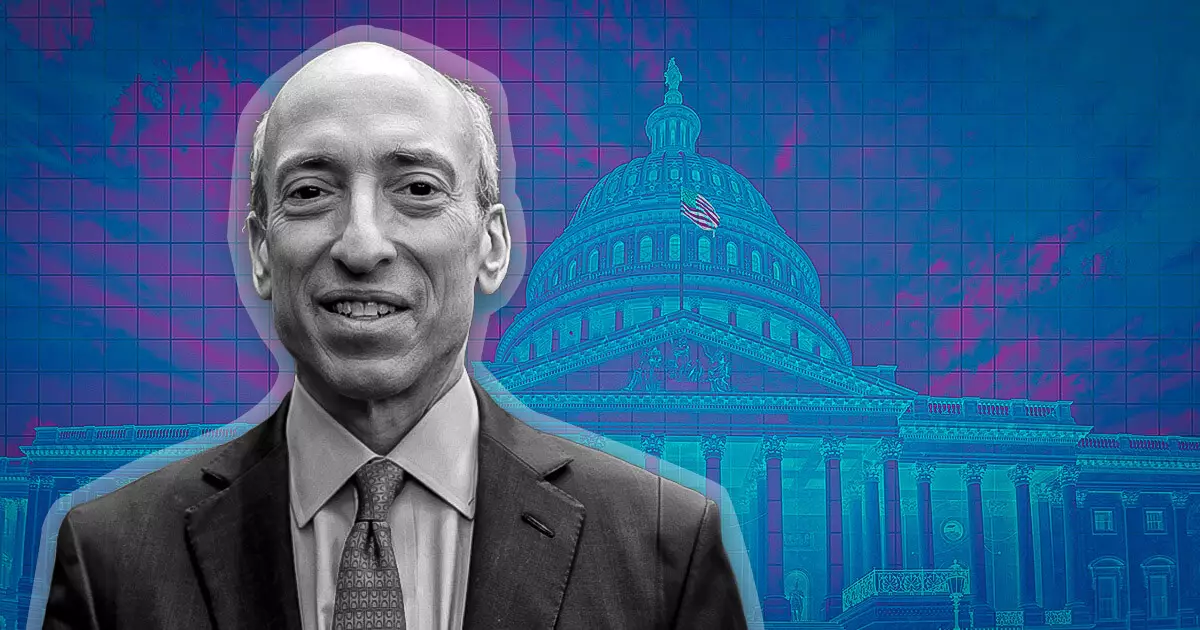In a era marked by rapid technological advancement, the clash between regulatory bodies and emerging sectors like cryptocurrency has reached a fever pitch. Recently, Tyler Winklevoss, co-founder of the cryptocurrency exchange Gemini and a former Olympic rower, voiced strong criticism of Gary Gensler, the chair of the U.S. Securities and Exchange Commission (SEC). In a blunt post on social media platform X, Winklevoss accused Gensler of acting with malice and intention, rather than making isolated errors in judgment. This criticism highlights a broader concern surrounding the regulatory landscape of cryptocurrency and the implications it has for innovation and economic stability.
Gensler’s actions, according to Winklevoss, resulted not just in regulatory overreach but may have inadvertently pushed the cryptocurrency market to the brink of collapse. With this assertion, Winklevoss introduces a narrative of an aggressive regulatory environment that appears more focused on personal agendas than on fostering responsible innovation. Such allegations bring forth valid questions about the current regulatory framework governing cryptocurrencies and whether it adequately embraces this burgeoning industry or stifles its growth.
Winklevoss emphasized that Gensler’s approach has already inflicted irrevocable damage, not only to the crypto industry but also to the broader U.S. economy. His rhetoric is charged with anguish, asserting that the consequences of Gensler’s policy decisions have led to the annihilation of jobs, capital, and overall industry livelihoods. This sentiment resonates with many stakeholders within the crypto community who feel threatened by a regulatory climate that seems intent on dismantling their efforts rather than supporting sustainable growth.
By framing Gensler’s actions as maliciously intended, Winklevoss positions himself as not only a critic but also a voice for the collective unease felt by many Americans. He argues that citizens have grown weary of seeing their tax dollars used to finance bureaucracies that seem to act against their interests—not protect them. This perspective goes beyond mere discontent; it reflects a growing distrust in government institutions and their ability to adapt to technological changes that could benefit society as a whole.
To punctuate his discontent, Winklevoss asserts that Gensler should be excluded from any future positions of influence or authority. He argues that the path to safeguarding against potential governmental abuse lies in completely severing connections with figures like Gensler, who he believes prioritize personal agendas over public well-being. Moreover, Winklevoss advocates for a boycott of any institutions that might consider employing Gensler following his departure from the SEC, underscoring a demand for accountability that he feels is crucial for restoring faith in regulatory frameworks.
This outcry against Gensler’s regulatory strategies aligns with similar sentiments expressed by several states, as 18 U.S. states filed a lawsuit alleging gross governmental overreach against the SEC. This extensive pushback reflects a growing coalition of dissenters who recognize the need for a more balanced regulatory approach that considers both the interests of maintaining order in the financial markets and supporting nascent technologies.
The political implications of Gensler’s tenure are further complicated by the ambitions of political figures such as Donald Trump. The President-elect has made his intentions clear: should he return to the White House, he expects to dismiss Gensler on day one. However, constitutional structures limit the President’s direct influence over independent regulatory agencies like the SEC, which poses an interesting tension in the future of cryptocurrency regulation.
With potential candidates already emerging for key financial regulatory positions, the discourse surrounding Gensler’s legacy reflects a larger narrative: the necessity of fresh perspectives to guide financial technology regulations that foster innovation rather than suppress it. In this volatile environment, stakeholders must remain vigilant and engaged in the ongoing conversation about the future of cryptocurrency regulation and the role of government institutions in shaping economic landscapes.
The exchange between Winklevoss and Gensler represents not just a clash of personalities but a fundamental debate over the future of regulation versus innovation. As this dynamic continues to evolve, the necessity for an adaptable and supportive regulatory framework becomes increasingly paramount, reflecting a collective desire for constructive dialogue that embraces technological advancement while ensuring fairness and accountability.



















Leave a Reply